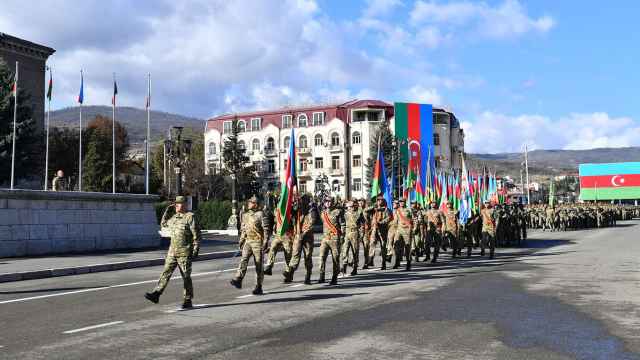In Israel, Russia is often seen through a Western lens and is heavily criticized for its positions on Syria and the Iranian nuclear issue. A conversation about Russian foreign policy usually ends up with raised eyebrows and an unequivocal certainty about Russia's "anti-West nature." This is true in part, but Russia should be seen as acting like any other country trying to preserve its perceived national interests.
Strange as it might seem, Israel and Russia's interests often coincide in this volatile region. Some of the reasons for this include the fact that one-sixth of Israel's population is of Russian descent, Russians are the second-largest group of tourists who vacation in Israel, and the most important holy sites of Christianity are found in Israel.
In addition, many of Russia's geopolitical interests in the region are similar to Israel's. During the past decade, Russia has been trying to establish itself as an influential player in the Middle East, particularly as a counterbalance to strong U.S. influence in the region. That is why the Kremlin values its membership in the Quartet. Along with the other Quartet members — the United Nations, the United States and the European Union — Russia plays an important role in negotiating peace between Israel and the Palestinians.
Nonetheless, Russia is trapped in a prickly situation. The Kremlin's perceived support of Iran and Syrian President Bashar Assad antagonizes the Sunni world, pushing Moscow into the midst of the Sunni-Shiite rift that divides the Middle East.
Moscow's multivector Middle East foreign policy is driven by a desire to talk to every party involved in a bid to prevent further global interference in the internal matters of sovereign states. The Arab Spring is not perceived as a positive regional development because it has led to the rise of radical Islam. The Kremlin's fear is that there may be a spillover effect in the North Caucasus and Central Asia.
President Vladimir Putin's visit to Israel on Monday might be part of a new Kremlin policy toward Jerusalem. Israel is seen as a prosperous and stable regional power whose interests often coincide with Moscow's. For example, Israel and Russia have strained relations with Turkey, and both fear the turbulence of radical Islam. Economically, trade between the two countries is growing, as is military and homeland-security cooperation. There are several large-scale hi-tech ventures between the countries, and Gazprom is exploring the possibility of engaging in newly discovered gas fields off the coasts of Israel and Greece.
Russia, no doubt, will continue to pursue its multivector policy in the Middle East. It will continue to pursue its policy of speaking to every significant player in the region, including Hamas, Hezbollah and other radical organizations. But given Moscow's interest in establishing stability in the region, it will also try to influence emerging Islamic governments to act in a more moderate and peaceful way.
Although then-President Dmitry Medvedev postponed a trip to Israel in 2009 because of a strike in the Israeli Foreign Ministry, Putin has shown his commitment to developing stronger relations with Israel by scheduling his visit to the country so soon after his third presidential term began.
Several years ago, U.S. Secretary of State Hillary Clinton and Foreign Minister Sergei Lavrov pushed the "reset" button, hoping to renew U.S.-Russia relations in good faith. But the "reset" has been faltering. Let's hope that the Russia-Israel relationship will be more productive.
Andrei Kozhinov is director for Russian affairs at the Israel Project in Jerusalem.
A Message from The Moscow Times:
Dear readers,
We are facing unprecedented challenges. Russia's Prosecutor General's Office has designated The Moscow Times as an "undesirable" organization, criminalizing our work and putting our staff at risk of prosecution. This follows our earlier unjust labeling as a "foreign agent."
These actions are direct attempts to silence independent journalism in Russia. The authorities claim our work "discredits the decisions of the Russian leadership." We see things differently: we strive to provide accurate, unbiased reporting on Russia.
We, the journalists of The Moscow Times, refuse to be silenced. But to continue our work, we need your help.
Your support, no matter how small, makes a world of difference. If you can, please support us monthly starting from just $2. It's quick to set up, and every contribution makes a significant impact.
By supporting The Moscow Times, you're defending open, independent journalism in the face of repression. Thank you for standing with us.
Remind me later.





